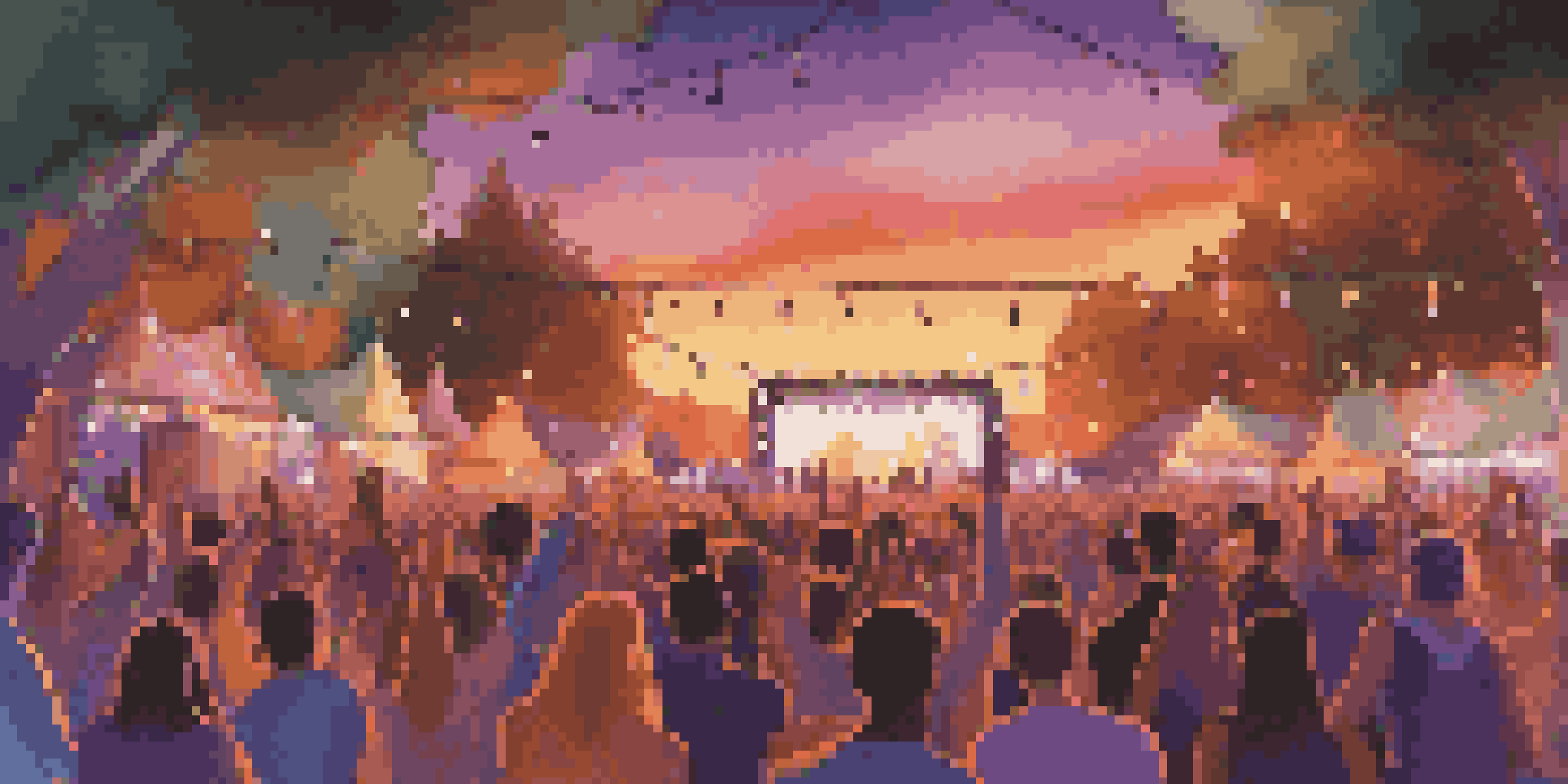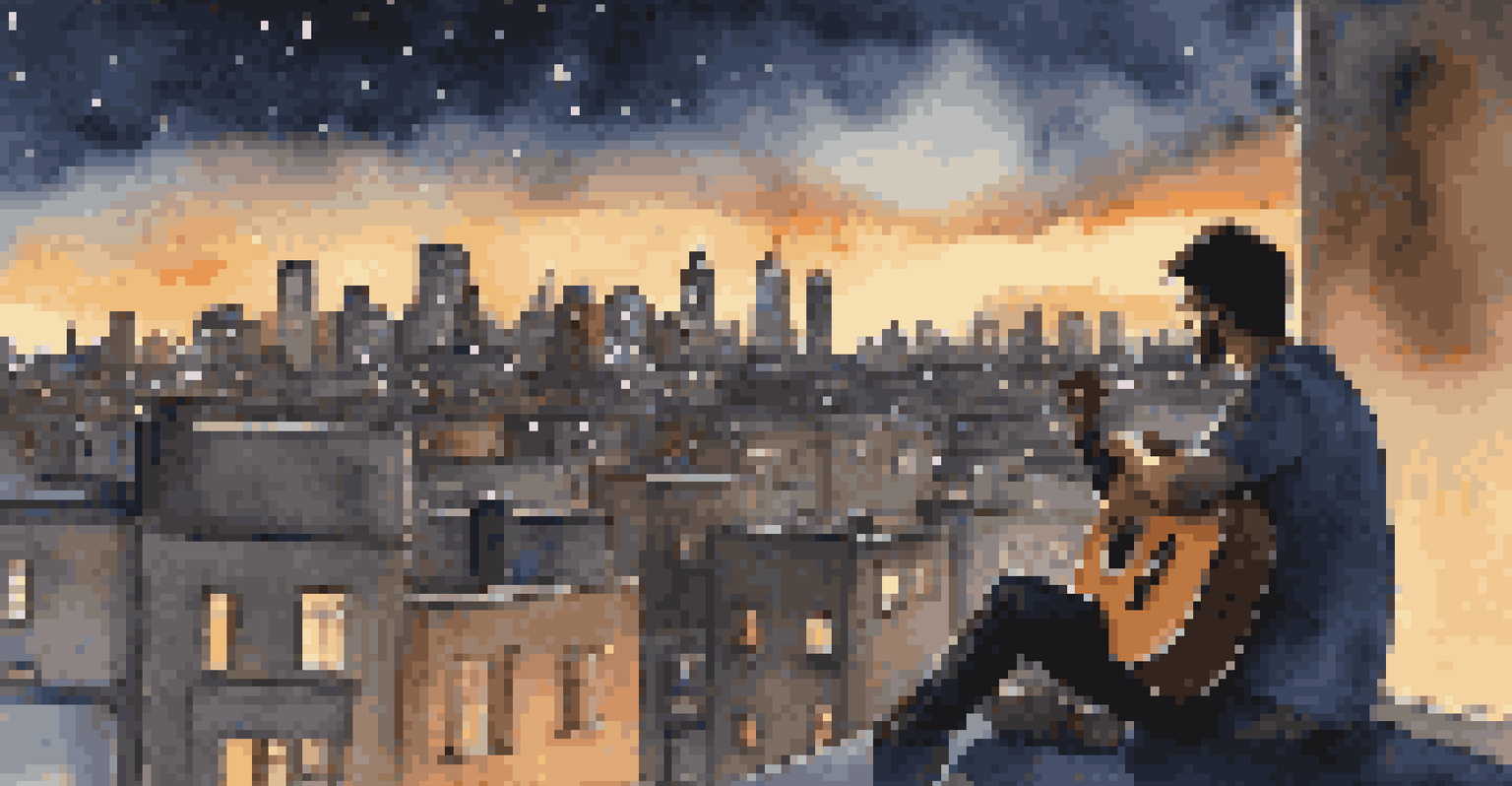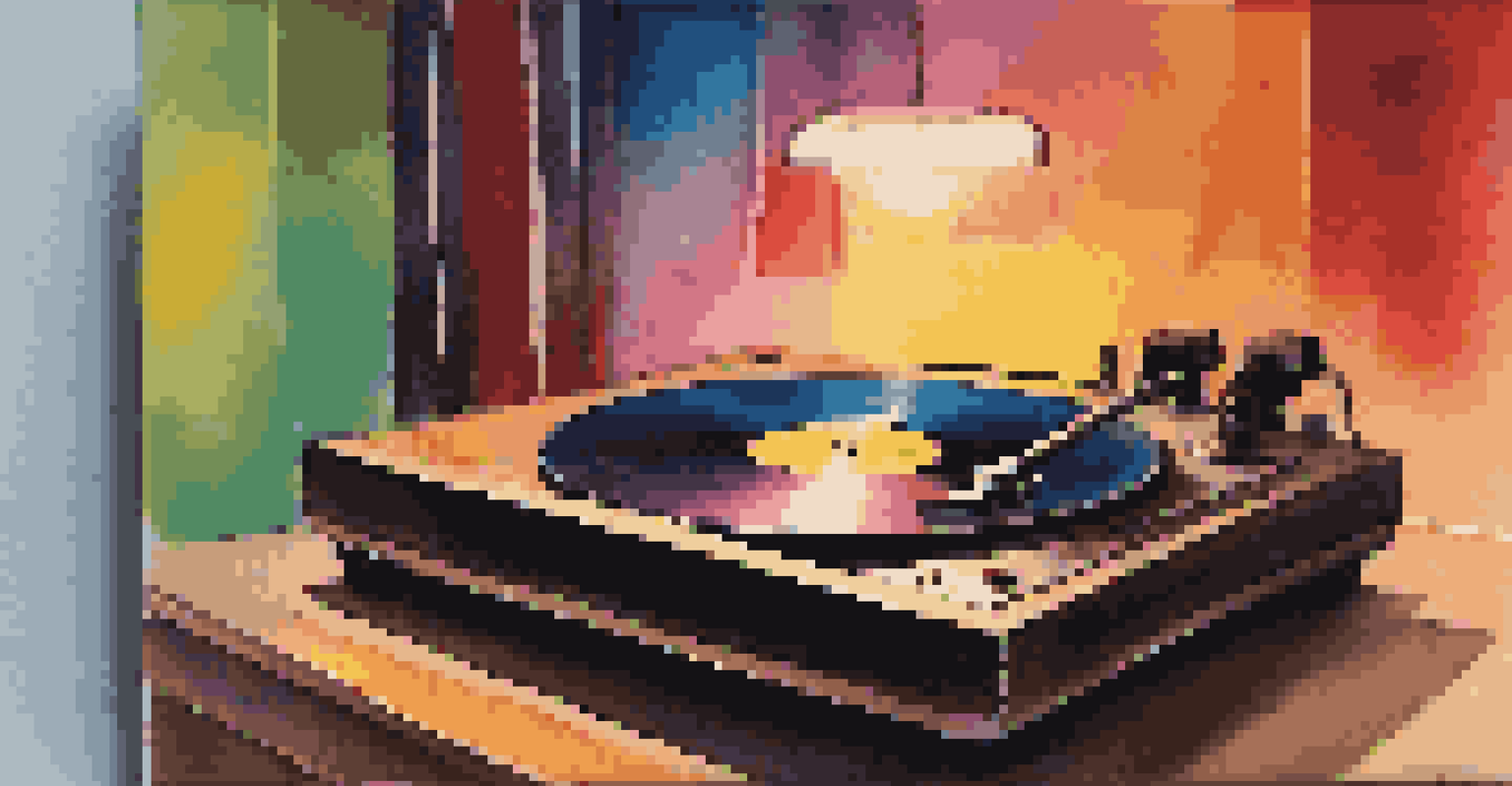Exploring the Relationship Between Music and Personal Freedom

Understanding Personal Freedom in Music
Personal freedom is often defined as the ability to express oneself without constraints. In the realm of music, this freedom allows individuals to explore their identities, emotions, and experiences. Whether through listening or creating, music becomes a canvas for personal expression.
Music is the shorthand of emotion.
For many, music acts as a form of liberation, enabling them to break free from societal norms. It offers a space where people can voice their thoughts and feelings without fear of judgment. This connection between music and personal freedom can be profoundly therapeutic.
Moreover, the diverse genres and styles available mean that there’s something for everyone. From punk rock’s rebellious spirit to classical music’s grace, each style offers unique ways to express personal freedom, reflecting individual tastes and life stories.
The Role of Music in Cultural Movements
Throughout history, music has played a pivotal role in driving cultural and social movements. Songs have been powerful anthems for change, uniting people under a common cause. Think of the civil rights movement, where music became a rallying cry for freedom and equality.

These musical expressions not only bring awareness but also inspire action. They become the voice of the oppressed, giving them a platform to share their struggles and aspirations. In this way, music transcends mere entertainment; it becomes a fundamental tool for personal and communal liberation.
Music as Personal Expression
Music provides a unique platform for individuals to express their identities and emotions freely.
As we listen to songs that resonate with our beliefs, we often feel a profound sense of belonging. This shared experience can empower individuals, reminding them that they are not alone in their fight for freedom.
Music as a Tool for Self-Discovery
Engaging with music can be a powerful journey of self-discovery. Whether writing lyrics, composing melodies, or simply listening, the act of connecting with music allows individuals to uncover hidden aspects of themselves. It prompts introspection and invites emotional exploration.
Where words fail, music speaks.
For instance, many people find that certain songs or genres resonate with their personal experiences, serving as a mirror reflecting their innermost thoughts. This connection can be a catalyst for change, pushing them toward greater self-awareness and acceptance.
Additionally, genres like folk or indie music often tell stories of personal struggles and triumphs, further encouraging listeners to reflect on their own journeys. By creating or engaging with such music, individuals can embrace their stories, promoting personal freedom in the process.
The Emotional Impact of Music on Freedom
Music has the remarkable ability to evoke emotions, which can directly impact our sense of freedom. A powerful ballad can bring tears, while an upbeat song can inspire joy and movement. This emotional connection fosters a sense of liberation as we express our feelings through music.
For many, music acts as an emotional outlet, providing a safe space to process complex feelings. When we engage with music, we often feel empowered to confront our emotions, leading to a greater understanding of ourselves. This is especially true in times of struggle, where music can offer solace and strength.
Cultural Movements and Change
Throughout history, music has united people in cultural movements, serving as a powerful tool for social change.
Moreover, communal music experiences—like concerts or festivals—create shared emotional moments that enhance feelings of freedom. The collective joy of dancing and singing together can break down barriers, reinforcing the idea that music can unite us in our personal and collective quests for freedom.
Music and Autonomy in Creative Expression
The creative process of making music itself is a powerful assertion of personal freedom. Musicians often explore their thoughts, beliefs, and experiences through their work, claiming autonomy over their narratives. This creative expression is a declaration of independence, showcasing one’s unique voice.
In genres like hip-hop, artists frequently use their craft to comment on social issues, turning personal experiences into powerful statements. By doing so, they not only express their individuality but also inspire others to reflect on their circumstances, promoting a broader sense of freedom.
The act of creating music allows for experimentation and innovation, encouraging artists to explore uncharted territories. This creative journey fosters an environment where personal freedom thrives, enabling musicians and listeners alike to embrace their true selves.
The Influence of Music on Mental Health
Music has a profound impact on mental health, often serving as a source of comfort and healing. For those facing challenges such as anxiety or depression, music can provide an escape and a means of expression. This therapeutic aspect of music highlights its role in promoting personal freedom.
Listening to or creating music can help individuals process their emotions, offering a safe channel for releasing pent-up feelings. This freedom to express oneself can lead to improved mental well-being, encouraging individuals to confront their struggles head-on.
Music's Healing Power
Engaging with music can enhance mental health by offering a therapeutic outlet for emotions and promoting personal freedom.
Furthermore, studies have shown that music can boost mood and foster resilience. This emotional uplift not only enhances personal freedom but can also inspire others to explore their own paths to healing and self-discovery.
The Future of Music and Personal Freedom
As technology continues to evolve, so does the landscape of music and its relationship with personal freedom. With platforms like Spotify and SoundCloud, artists have more opportunities than ever to share their work. This democratization of music allows for diverse voices to be heard.
The rise of online communities and social media also enables individuals to connect over shared musical interests, fostering a sense of belonging. This interconnectedness can empower listeners and creators alike, reinforcing the idea that music is a universal language of freedom.

Looking ahead, it's essential to consider how we can continue to support and celebrate the intersection of music and personal freedom. By championing diverse musical expressions and promoting mental health awareness, we can ensure that music remains a powerful force for liberation in our lives.